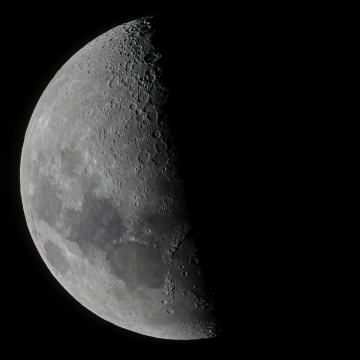Astrology is a field of study that has fascinated humanity for thousands of years. Throughout history, people have looked to the sky for answers, believing that the stars and planets can influence our lives and our destiny. Although astrology is often considered a pseudoscience by the scientific community, it remains a popular and widely accepted practice in many cultures around the world.
Astrology is the study of the position and movement of stars, such as planets and stars, and their influence on events and people's personalities. This practice is based on the belief that the cosmos is interconnected and that celestial patterns can provide information about an individual's life and destiny. Astrology has been practiced in various cultures for thousands of years and has evolved over time, giving rise to different systems and approaches.
History of Astrology
The history of astrology dates back to ancient times. Evidence of the practice of astrology has been found in ancient civilizations such as the Babylonian, Egyptian and Chinese. Each of these cultures developed their own astrological systems and beliefs.
Babylonian Astrology: Babylonian astrology is one of the oldest known forms of astrology. The Babylonians believed that the movements of the planets and stars were linked to the destinies of people and nations. They developed astronomical tables and astrological predictions that were used to make political and personal decisions.
Egyptian Astrology: The ancient Egyptians also practiced astrology, although their approach was different from that of the Babylonians. Egyptian astrology focused on the relationship between astral cycles and agriculture. The Egyptians believed that the Nile flood cycle was related to the positions of the stars.
Chinese Astrology: Chinese astrology is based on the Chinese zodiac, which is made up of twelve animal signs that repeat in a twelve-year cycle. Each year is associated with an animal, and people born in a particular year are believed to share similar characteristics with the corresponding animal.
Astrology also developed in ancient Greece and Rome, where the beliefs of other cultures mixed with their own. The Greeks were the first to introduce the idea that the position of the stars at a person's birth could influence their personality and destiny. This led to the development of natal astrology, which is the most common form of astrology practiced today.
Basics of Astrology
Modern astrology is based on several fundamental principles:
The Planets : In modern astrology, the planets of the solar system, including the Sun and Moon, are used as astrological symbols. Each planet is associated with particular characteristics and qualities. For example, Mars is associated with action and energy, while Venus is associated with love and beauty.
The Signs of the Zodiac: The zodiac is an imaginary band that surrounds the Earth and is divided into twelve signs, each associated with a month of the year. Each sign has its own characteristics and personality traits. For example, Aries is associated with bravery and impulsivity, while Libra is associated with diplomacy and justice.
The Astrological Houses: The astrological houses represent areas of a person's life, such as career, family and love. Each house is associated with a sign and a planet, and its position in a person's natal chart provides information about how those areas manifest in their life.
Planetary Aspects: Aspects are angles between the planets in a person's natal chart. These aspects can be harmonious or challenging and provide information about the dynamics of a person's personality and life experiences.
Astrology Today
Even though astrology has been around for thousands of years, it remains a popular practice today. Many people turn to astrologers and read horoscopes daily to gain guidance and insight into their lives. Although astrology is not considered a legitimate science by the scientific community, it has a large following throughout the world.
Astrology has adapted to the modern era and has become accessible through technology. Astrology websites and apps offer birth chart readings, personalized horoscopes, and couple compatibility analysis. Social media also plays an important role in the spread of astrology, with astrologers regularly sharing their knowledge and forecasts on platforms such as Instagram and Twitter.
Criticism and Skepticism
Despite its popularity, astrology has also faced criticism and skepticism from the scientific community and skeptics in general. Arguments against astrology include:
Lack of Empirical Evidence: Astrology is based on claims that have not been supported by solid empirical evidence. Scientific studies have shown time and time again that there is no significant correlation between the position of the stars and a person's personality or destiny.
Barnum Effect: The Barnum effect, also known as the personal validation fallacy, refers to people's tendency to accept general descriptions as if they were specific to them. Horoscopes are often vague and generalized, allowing people to interpret them in ways that fit their own lives.
Precession of the Equinoxes: The precession of the equinoxes is an astronomical phenomenon that has slowly changed the position of the constellations in the sky in relation to the dates of the zodiac. This means that the dates of the zodiac signs no longer coincide with the position of the constellations in the sky.
Lack of Consensus: Different astrological traditions use diverse systems and approaches, which generates a lack of consensus in astrological interpretation. This makes astrology less reliable and consistent.
Why Do People Believe in Astrology?
Despite criticism and skepticism, astrology remains popular and appreciated by many people. Some of the reasons why people believe in astrology include:
Sense of Community: Astrology can provide a sense of community and belonging. People who share a zodiac sign often feel a connection and enjoy discussing the similarities and differences in their personalities.
Guidance and Reflection : Many people turn to astrology for guidance and reflection on their lives. Horoscopes and birth charts can offer advice and insights that sometimes feel relevant and meaningful.
Entertainment : For many people, astrology is simply a form of entertainment. They read their horoscopes as a hobby without taking them too seriously.
Archetypes and Symbolism: Astrology is based on archetypes and symbolism that resonate with human psychology. The symbols and metaphors used in astrology can provide a way to explore psychology and personality.
Regardless of whether one believes in astrology or not, it is indisputable that it has left an indelible mark on the history of humanity. The fascination with the sky and the search for meaning in the stars will continue to be an important part of our culture and our quest to understand the world around us. Astrology, ultimately, is a reflection of our eternal curiosity and desire to find patterns and meaning in the vast cosmos around us.






